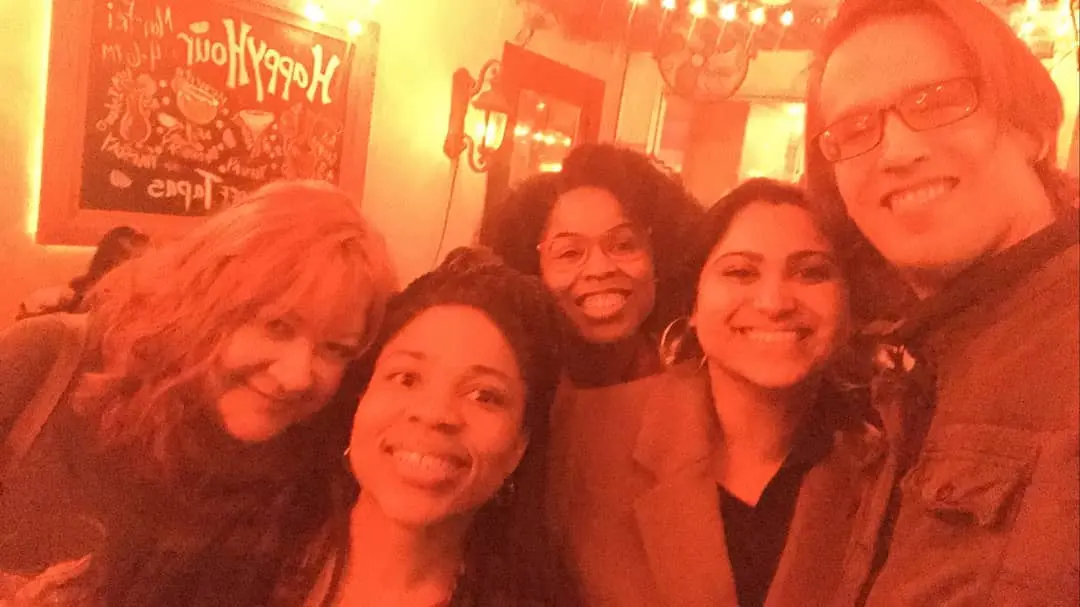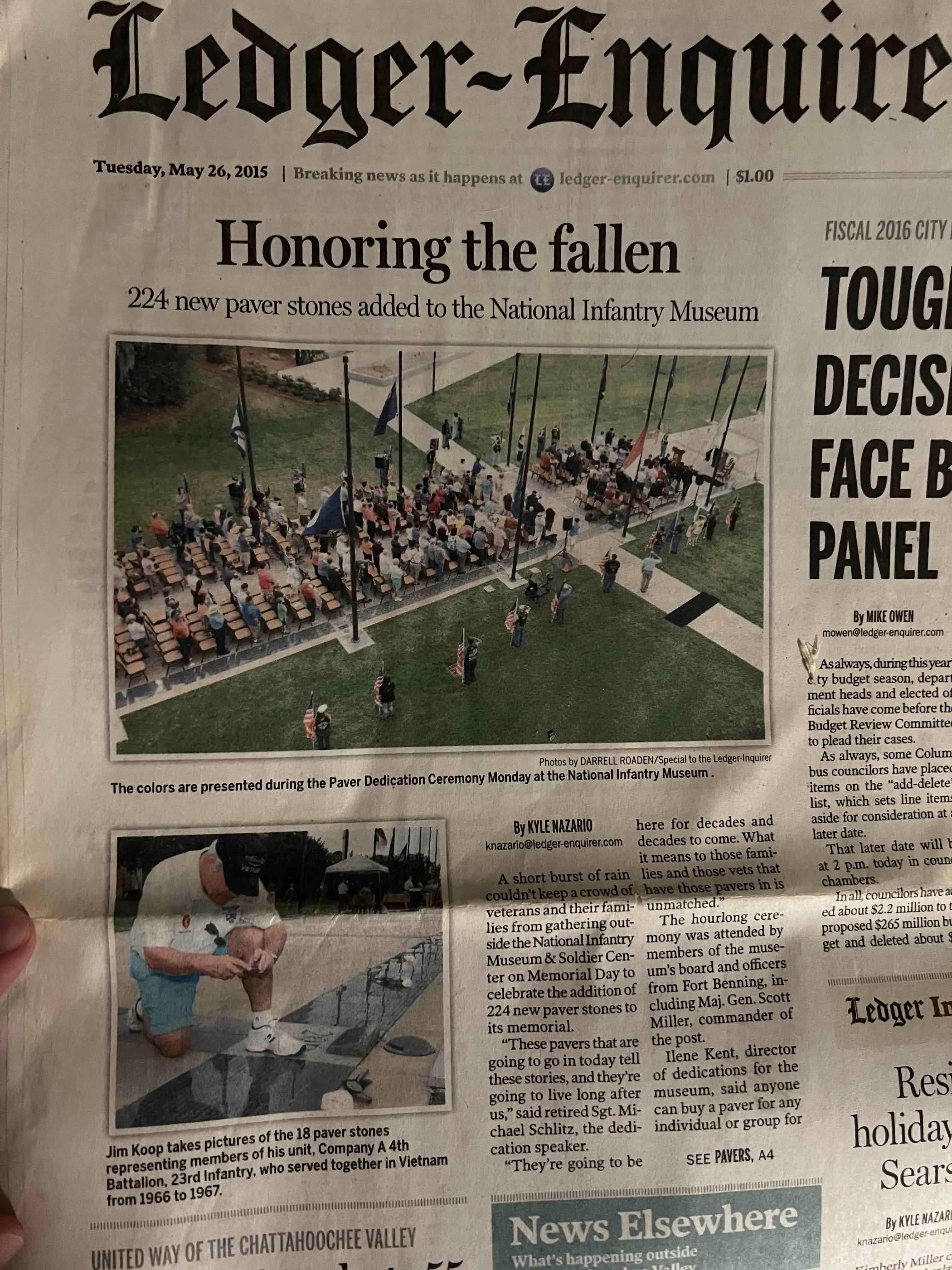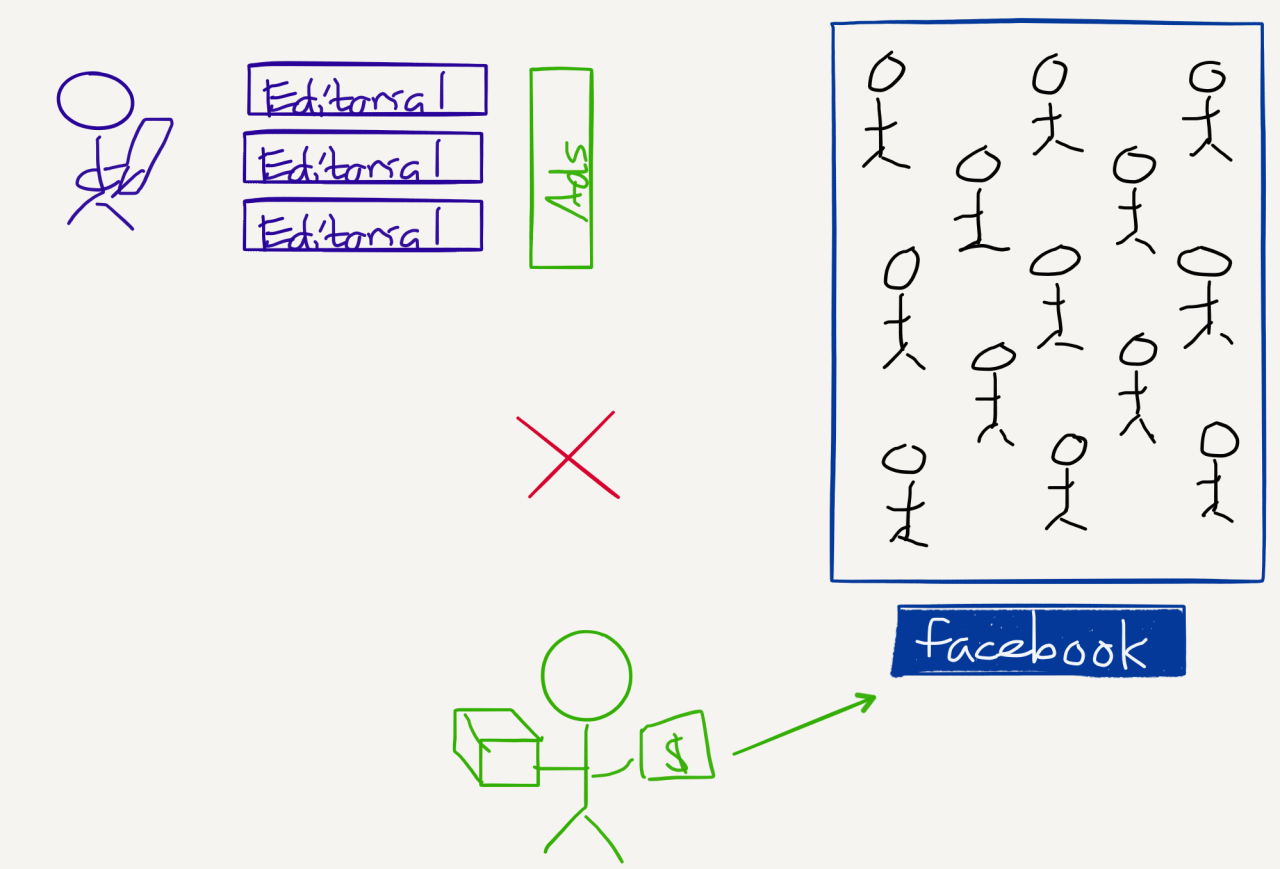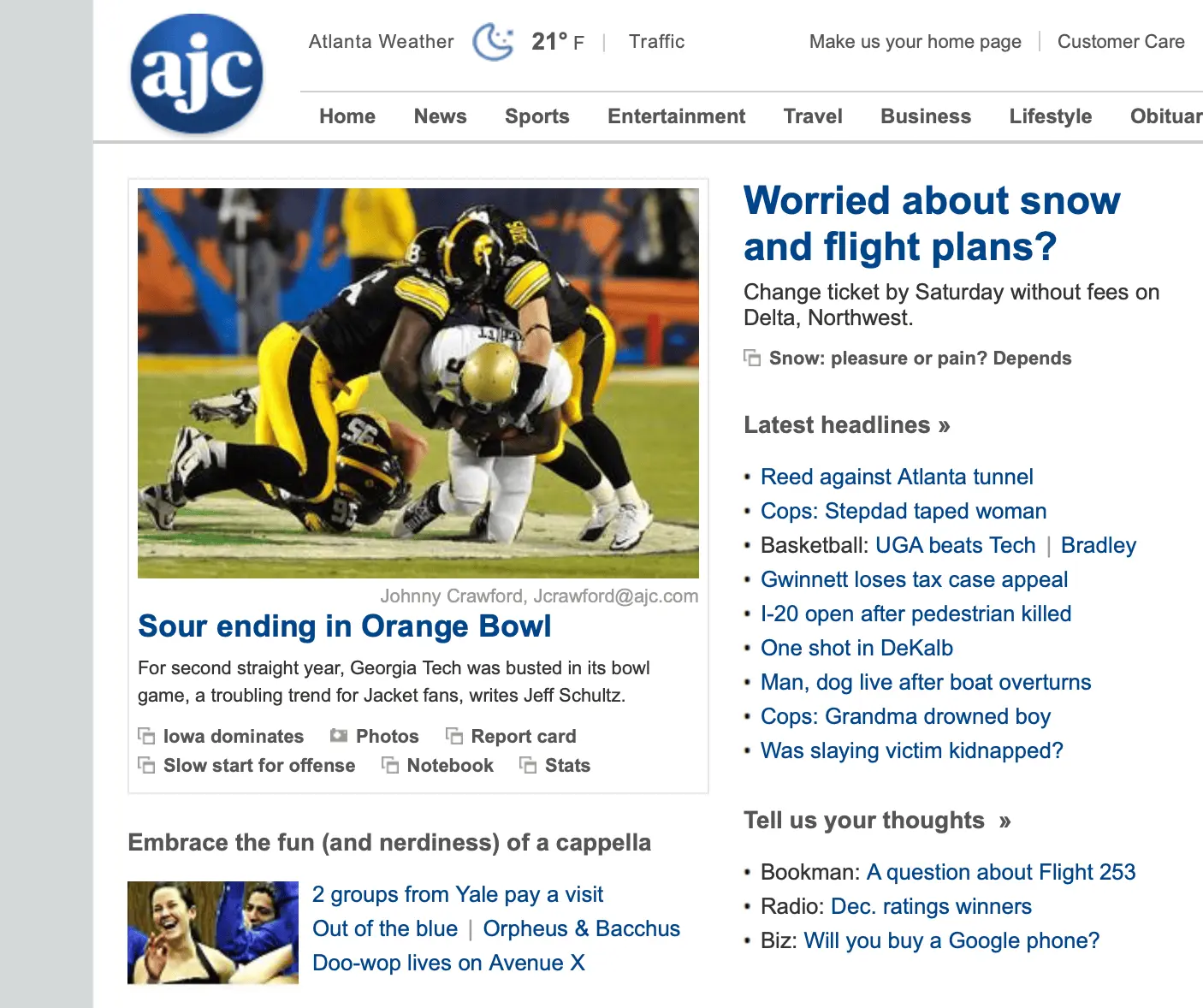
My awesome Atlanta Journal-Constitution team
Coworkers at software companies are sometimes surprised to learn I went to school for journalism and worked in news. Journalist to software developer is an unusual career path. I don’t know anyone else who’s done it.
Sometimes people ask me why I left journalism. I left for two reasons.
First, reporting and speaking to strangers was tough for an introvert. I prefer sitting in my office solving logic puzzles (“programming”).
The other reason is sad. The news industry is dying. I don’t think non-journalists realize how bleak things are. I got out in 2019 when the getting was good.
Background
I graduated from Auburn University in 2015. My girlfriend at the time was going to the University of Georgia for vet school. I wanted to stay close-ish, so I joined the Ledger-Enquirer in Columbus, Georgia, as a digital producer.
I managed the website, covered breaking news, and collected arrest reports from the jail. I worked most holidays. I was 22, it was my first job, and I was thrilled to be paid $32,000 a year.

The job also gave me firsthand experience with the dysfunction plaguing local news, which is that it does not make money.
Newspapers had three three revenue streams:
- Advertising
- Subscriptions
- Classifieds
The first two are dying and the third was annihilated by Craigslist 1.
A coworker in his 50s told me the Ledger-Enquirer used to be so loaded they sent reporters to cover the 2000 Sydney Olympics in person. For a newspaper that only ran in Columbus, Georgia.
When I joined in 2015, those days were over. The Ledger newsroom was staffed by reporters in their 50s and 60s, people with one eye toward retirement. Other than my boss, a thirty-something woman, the newsroom was recent college graduates and people whose kids were recent college graduates.
When people left, they usually weren’t replaced. We had an older woman answer phones and handle customer complaints. The Ledger never hired a replacement after she retired. I don’t know where complaints went then.
Theorycrafting
It was at this point I started reading Ben Thompson’s Stratechery. I forget how I discovered it. Probably linked on Daring Fireball or Hacker News.
Thompson sketched out some basic economic logic that I, a journalism major with zero business sense, had not encountered.
- Newspapers used to be an intermediary between customers and advertisers

Via Stratechery
- Advertisers could reach customers directly through Facebook and Google now
- Facebook and Google’s data and granular targeting made them better than newspapers at finding potential customers
- Advertisers would leave newspapers

Via Stratechery
This was unnerving. If Thompson was right, the whole news industry was a fleet of sinking ships. Every year, the water would rise. How was I to make a career? Jump from ship to ship, trying to stay above water?
The AJC
I left Columbus after just nine months. I missed my partner, who lived three hours away. Also, other than one rad open mic night, Columbus was boring.
So I packed up my stuff for Athens, Georgia, and moved in with my partner. I got a job as a digital content producer at the Atlanta Journal-Constitution.
The AJC hired me as a full-time contractor. I made $36,500 a year, but had no health insurance or paid time off. Thankfully, I was 23 and could stay on my mother’s generous health insurance. I was to manage a team of freelancers, help with breaking news, update the website and republish wire stories for Atlanta audiences.

An extremely orange photo of my AJC squad at dinner. Love y’all.
I liked my coworkers, who were smart, funny, hardworking people. The problem was the AJC treated contractors terribly.
One of the breaking news reporters was a contractor. Like me, she had no benefits or paid time off. She gave birth and was back at work three days later. Couldn’t afford unpaid maternity leave.
Many younger AJC employees were contractors in name only. We performed the exact same jobs as full-time employees, using company equipment, during company hours, working on projects chosen by the company. I don’t know if it was a violation of labor law, but it felt unfair and disrespectful. 2 3
My supervisor promised she’d look into making me full-time. That never happened.
One reason for the company’s poor treatment of staff was its dire financials. Every quarter, we had an all-staff meeting. They were surprisingly candid. I learned, for example, the AJC’s revenue had fallen 6.3% for the last few years, every year.
The thing that truly broke my brain, though, was the chart of page views on ajc.com. They dropped 8% per year. Like clockwork.
I couldn’t comprehend this. In the three years I’d been at the AJC, we’d put so much effort into making the website better. Better content, better headlines, better social strategies, better everything. The 2010 website was leftovers from the print edition, and its traffic was over 50% better.

Pictured: Jan. 6, 2010. Traffic only got worse from here.
My work didn’t matter. Ben Thompson was right - the water was rising.
Software
I accepted journalism would not provide long-term stability and started considering alternatives.
I’d taken a few computer science classes in college and decided to brush them off. I chose Angular web development at random and started learning.
It was tough! I was commuting three hours a day (thank you Atlanta traffic) and holding down a full-time job. On top of all that, I spent two hours a day studying web dev. I know it was that long. I set a timer.
Learning software was amazing. It felt so rewarding to master the intricacies of code and build something real. It was more rewarding than any work I’d done previously.
After a year of reading, researching, and doing projects, I began applying. It took a lot of applications and luck, but I convinced someone to let me interview and aced it. I landed my first gig as a software engineer in Denver. Off to the races.
Parting thoughts
I still read and appreciate the work journalists do. It’s more vital than ever.
I don’t know what’ll happen to the industry. The water never stopped rising. It’s reached places I used to dream of working at, like BuzzFeed News, Vice, Vox Media and Condé Nast. No one’s safe.
Still, there are signs of hope. Subscriptions are funding a new generation of media like Defector, MinnMax and everyone on Substack. They’re even breathing new life into plucky upstarts like The New York Times.
I’m happy to have left reporting. It wasn’t a good fit for an anxious introvert. I also find software more rewarding. I love puzzling out solutions to complex technical issues and helping clients solve problems. It’s a career I love that loves me back.
I don’t take that for granted after being a journalist.
- Craig Newmark feels bad enough about this he donates millions to journalism nonprofits and schools.↩
- Not the only questionable thing the AJC did! I once shared a wire story on ajc.com about how to cancel your cable for streaming services. The story was taken down (not by me) because the AJC is part of the same corporate conglomerate as cable provider Cox Communications. I was told, “We shouldn’t encourage people to cancel their cable.”↩
- Okay, one more AJC story. There was a famously dirty, unsafe Kroger east of Midtown. It was known as Murder Kroeger, on account of the murders. My team was told to never publish that name because Kroeger was a huge advertiser.↩